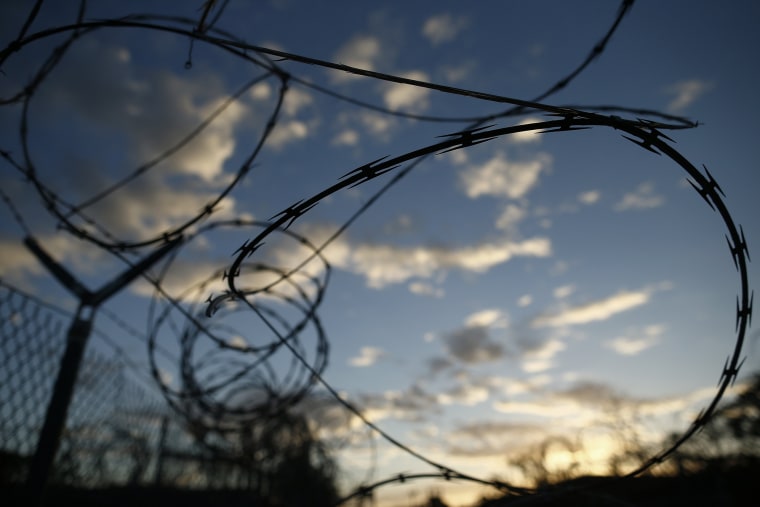The leaders of the House and Senate Armed Services committees announced Monday that they had reached an agreement over a defense bill that would ease the conditions on transfers of detainees held at Guantanamo Bay that the Obama administration has claimed prevented them from emptying the detention camp. The bill, which is now expected to pass both houses, would represent the first time that Congress has eased restrictions on transfers since Republicans took back the House in 2010. [...] The defense bill would clear the way for the majority of the remaining detainees, 82 out of 162, to be transferred abroad. An earlier Senate version of the bill had also allowed Gitmo detainees to be brought to the US for trial, while the House version had preserved prior restrictions on transfers of detainees. The resulting compromise between the Republican-controlled House and the Democratic-controlled Senate nevertheless leaves intact a ban on bringing Gitmo detainees to the US for trial or imprisonment, leaving a number of detainees to an uncertain fate -- even as it paves the way for most of the men currently detained at the facility to leave. More could be cleared for transfer as the administration conducts its reviews of the detainees left at the facility.
'This starts to untangle the knot'
The detention facility at Guantanamo Bay isn't closing just yet, but Congress' latest move is an incremental step in the right direction.

When we last checked in on the effort to close the detention facility at Guantanamo Bay, there were some encouraging signs of progress. We were reminded yesterday that movement will remain, at best, incremental.
The week before Thanksgiving, the Senate easily defeated a Republican effort to amend the annual defense bill -- the massive, National Defense Authorization Act (NDAA) -- to prevent transfers of detainees to U.S. soil. The vote offered new hope that the White House's goal of shuttering the detention facility was drawing closer.
Late yesterday, House and Senate negotiators reached an agreement on this year's NDAA, and though Guantanamo will remain open, President Obama's plan nevertheless inched forward. Adam Serwer reported overnight:
To be sure, there's still a wide gap between this new policy and Obama's end game, but given the lack of progress in recent years, incremental change is still change.
Dixon Osburn of Human Rights First told Adam, "This starts to untangle the knot at Gitmo. I think many in Congress are recognizing, even those who have supported transfer bans in the past, that the US must start to deal with GTMO as the combat operations in Afghanistan end in a year."
As for the other major political dispute in the NDAA, the new House-Senate compromise includes several provisions intended to prevent sexual assault of service members, but it omits the measure sought by Sen. Kirsten Gillibrand (D-N.Y.), who's pushed for a new policy that would place assault cases in the hands of prosecutors, not military commanders, who would decide which cases to pursue.
Gillibrand told Roll Call that she remains "confident" that her proposal isn't dead, and may yet be brought to the floor as a free-standing bill.